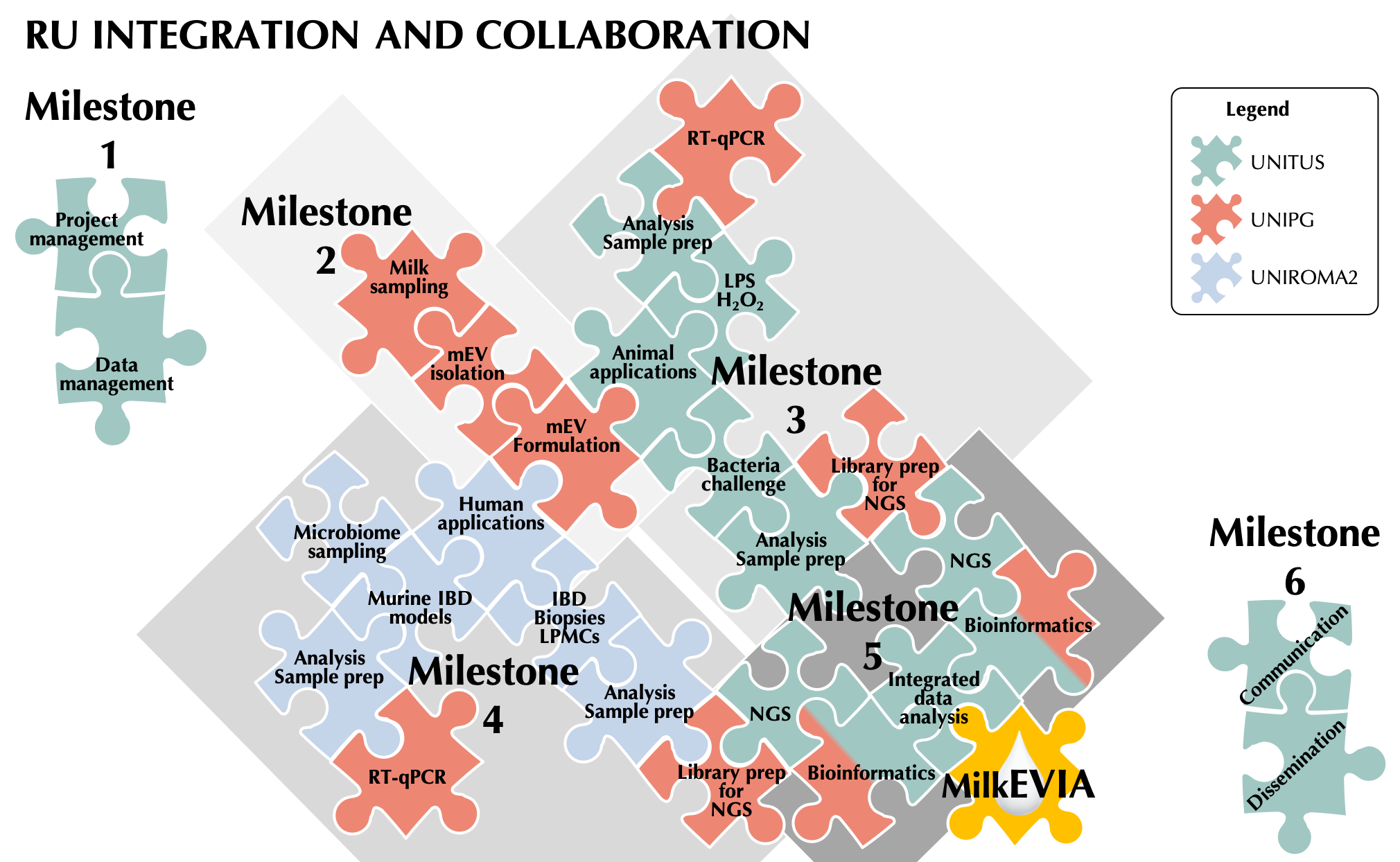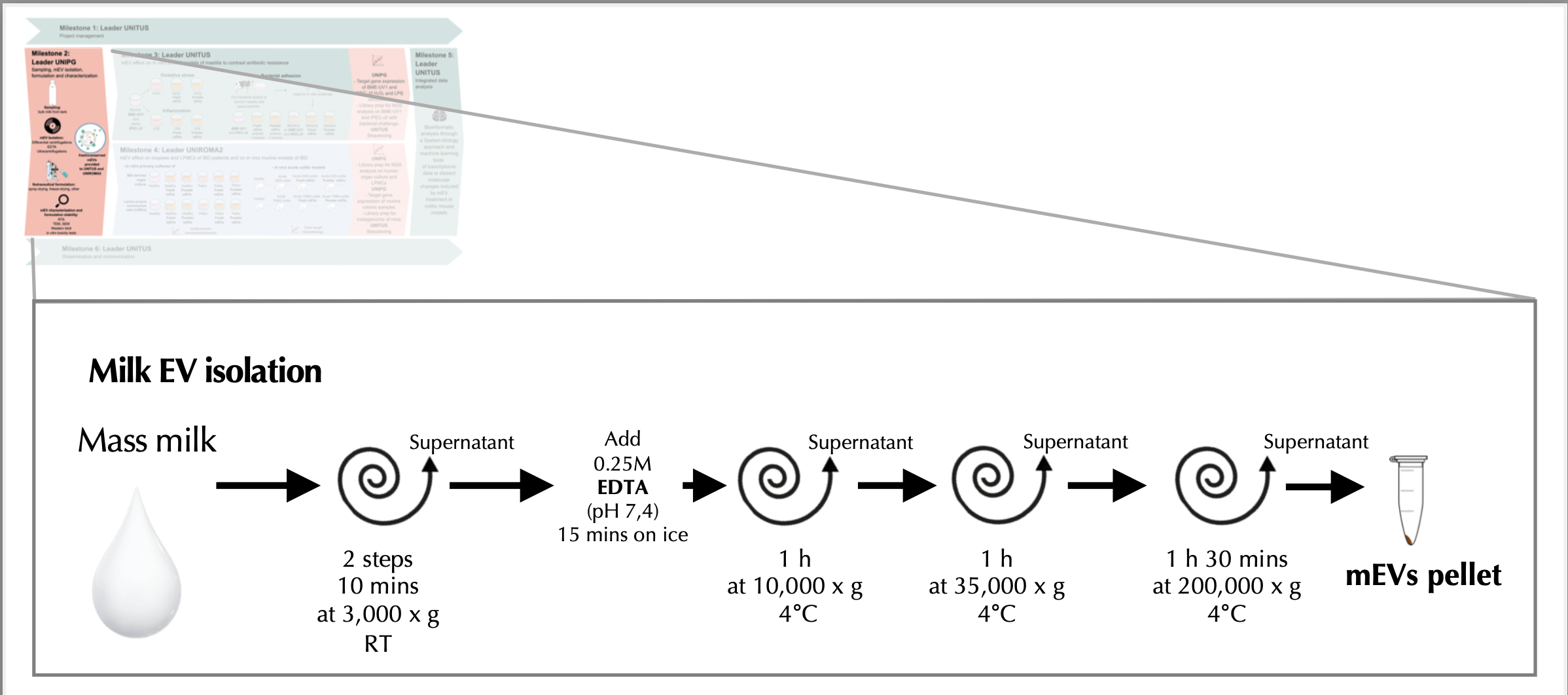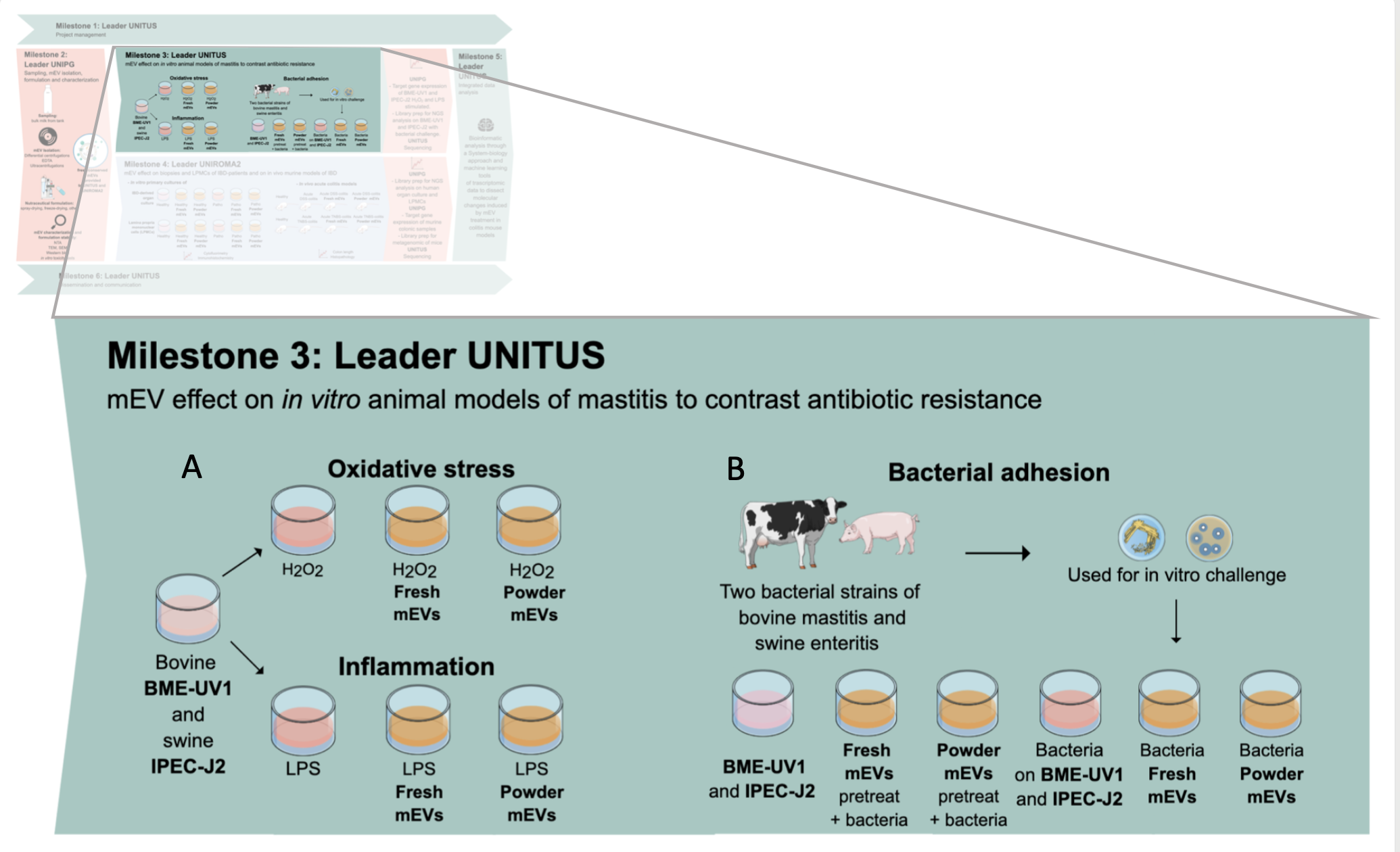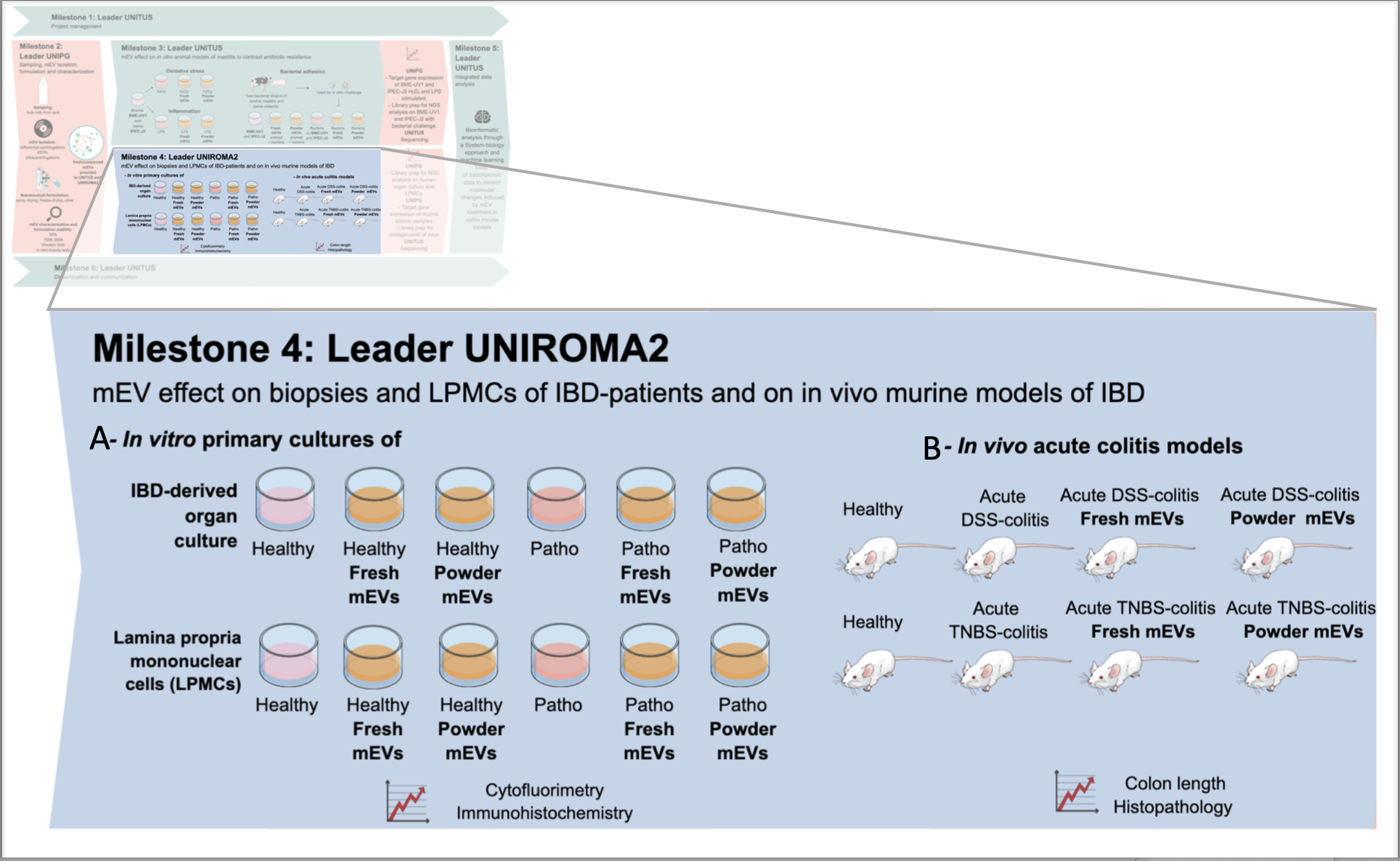
MilkEVia
Bovine milk Extracellular Vesicles (mEVs) as anti-inflammatory and immunomodulatory agents (MilkEVia) is “one health” concept project. Three complementary teams will work together to achieve high-impact outcomes, particularly in public health aspects. Among the global health problems, antimicrobial resistance is the one where the “one health” concept is most important and results are expected in both animal and human welfare. With MilkEVIA, in fact, an alternative treatment to antibiotics, is presented for livestock and humans and the valorization of natural resources and the sustainability of the livestock sector is presented.
PROJECT OBJECTIVES
An innovative objective of this project proposal is already in itself the use of Extracellular Vescicle (EVs) in field applications. An innovative field of medical research, indeed, is the use and development of EVs as a delivery system. In this context, milk can play a key role, bringing fundamental advantages such as ease of obtaining and large-scale production. In fact, among the other food sources of EVs, milk is widely available as a natural resource and an inexpensive raw material, particularly promising for the massive production of beneficial EVs. Milk extracellular vescicle (mEVs) can also assist the action of a possible drug and are easily administered through a non-invasive method (oral route or intramammary infusion) deriving from food. The mEVs, while protecting their labile molecular structure and resisting to various adverse environments, are not storable for a long time. Currently, there is no optimal storage method for EVs, especially for mEVs. From this perspective, it is of fundamental importance to develop a system of conservation of mEVs that does not modify any of their beneficial properties and which can therefore make future use feasible. For these premises, the develop of a method for mEV conservation following isolation is fundamental for mEV field applications and an important innovative objective for the valorization of natural resources and the sustainability of the livestock sector.
For these reasons milkEVia has the objective of
- Identification of a low-cost technology to produce a formulation able to stabilize mEVs, preventing the degradation and allowing field applications
- Evaluation of fresh and formulated mEVs effects on in vitro models of mastitis (bovine) and enteritis (swine)
- Evaluation of the effects of fresh and formulated mEVs on in vitro and in vivo models of human IBD.
- Integrated data analysis of gene expression of mEV-receiving cells and tissues and microbiota in an IBD mouse model
MILESTONES
MILESTONE 1. Management(Leader UNITUS)

Objectives:
- Project coordination, financial and scientific management
- Ensuring project progress according to the work plan and use of resources - Addressing unexpected scientific, environmental, social and political issues
MILESTONE 2. Setup of the milk Extracellular Vesicles formulation (Leader UNIPG)

Objectives:
- Individuate farms for milk sampling
- Isolate milk-derived Extracellular Vesicles (mEVs) through a well-established isolation protocol previously set up for mEV isolation
- Set up of low-cost stabilization technologies for mEV preservation to allow field application
- Characterization of fresh and formulated mEVs
- Evaluation of the formulation stability through dedicated morphological and functional tests
MILESTONE 3. Milk EV formulation for animal applications(Leader UNITUS)

Objectives:
- Treatment with fresh and formulated mEVs preparations of an in vitro model of bovine mastitis
- Treatment with fresh and formulated mEVs preparations of in vitro model of swine enteritisBacteria challenge of bovine mammary gland cells and swine enterocytes associated and not associated with mEV treatment
- Evaluation of mEV effect on bacterial adhesion
- Evaluation of fresh and formulated mEV antioxidant, anti-inflammatory and immunomodulant effects on receiving cells through gene expression assessment
MILESTONE 4. Milk EV formulation for human applications (Leader UNIROMA2)

Objectives:
- To evaluate the regulatory functions of fresh and formulated mEVs preparations in IBD-derived organ cultures and lamina propria mononuclear cells (LPMCs) isolated from inflamed and non-inflamed mucosa of active IBD patients
- To evaluate the regulatory functions of fresh and formulated mEVs preparations in a murine experimental colitis model
- To characterize the specific mucosal cell type and dissect the molecular mechanism by which mEVs exert their anti-inflammatory function
MILESTONE 5. Data management and analyses (Leader UNITUS)

Objectives
- To establish standard operating procedures-SOPs
- To create and maintain a central database and software bioinformatic pipelines
- To evaluate molecular mechanisms of mEV action on inflammation, immunity, oxidative stress and bacterial adhesion
MILESTONE 6. Dissemination and communication(Leader UNITUS. Participants All) Objectives
Objectives:
- To develop communication strategies
- To actively publicize the project
EXPECTED RESULTS
- Valorize milk as a reservoir of bioactive molecules
- A better understanding of the mEV effect on oxidative stress and inflammation conditions
- A better understanding of the mEVs effect as antimicrobial
- Better understand of the mEVs effect on IBD in vitro and in vivo models
- Produce and evaluate a stabilized formulation of mEVs to be used in field applications, able to modulate animal innate immunity to contrast bovine mastitis and swine enteritis insurgence and to reduce IBD inflammation also through its modulation of microbiome.


